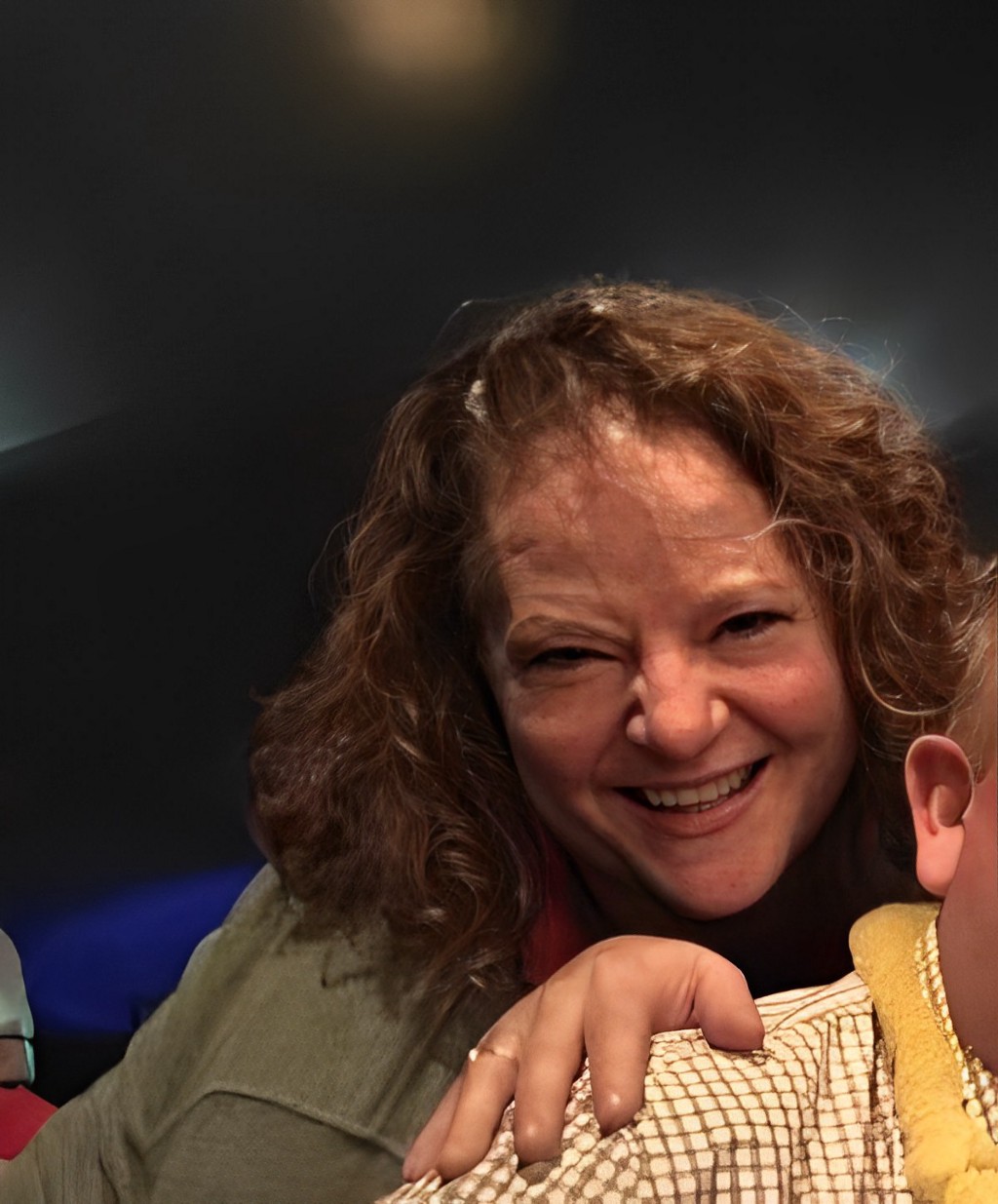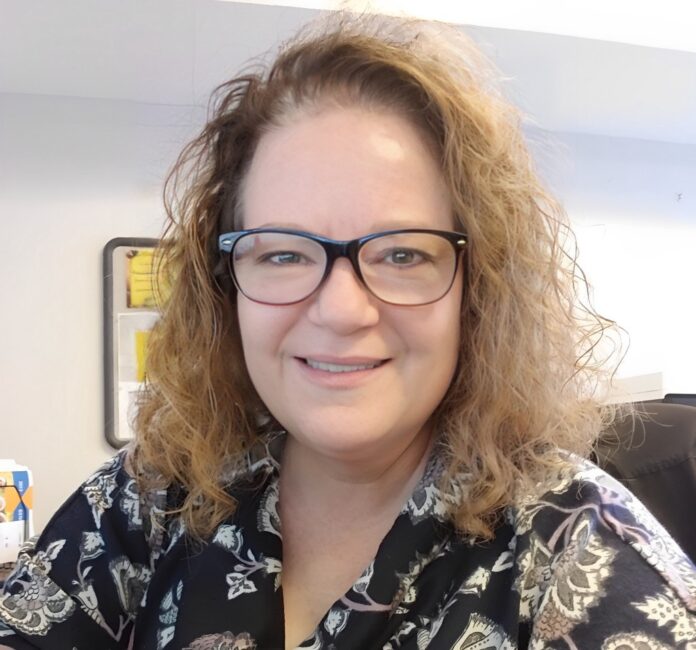The New Portrait Of Leadership: Kristin Heller Of HR Creative Consulting On Strategies to Shape Yourself Into A Modern Masterpiece
An Interview with Karen Mangia
Confidence without arrogance — An effective leader is confident in their skills, and they know how to be confident without crossing the line into arrogance. Once a leader is perceived as arrogant, employees will lose interest. Arrogance drives negative perception and team members will begin to question leadership integrity and authenticity.
We are living in the Renaissance of Work. Just like great artists know that an empty canvas can become anything, great leaders know that an entire organization — and the people inside it — can become anything, too. Master Artists and Mastering the Art of Leadership draw from the same source: creation. In this series, we’ll meet masters who are creating the future of work and painting a portrait of lasting leadership. As part of this series, we had the pleasure of interviewing Kristin Heller.
Kristin is a career HR professional. Kristin spent 20+ years in industry and is now a leadership coach and HR consultant with a drive to help business leaders learn to be better interviewers so they can build strong teams.
Thank you for joining us. Our readers would enjoy discovering something interesting about you. What are you in the middle of right now that you’re excited about personally or professionally?
I am currently finishing a book on effective interviewing. The intent is to assist business leaders, small business owners and non-HR professionals to conduct effective interviews to build strong teams. I want leaders to understand that an interview is more than a conversation. My book will be available in early 2023.
We all get by with a little help from our friends. Who is the leader that has influenced you the most, and how?
This is a so true! It is tough for me to choose one because I have learned so much from so many. That said, my former boss, Bob Callahan, taught me to be a better HR leader. He taught me how to get a seat at the table and develop HR into a strategic business partner. It was a game-changer for me and my career.
Sometimes our biggest mistakes lead to our biggest discoveries. What’s the biggest mistake you’ve made as a leader, and what did you discover as a result?
Again, it is tough to choose one mistake, there have been many. Learning from my mistakes has been a significant part of my development. I would say that my biggest mistake was learning that I could not lead and treat everyone the same. An impactful part of leadership is understanding your audience, understanding your team members, and learning to lead them both as a group as well as individually.
How has your definition of leadership changed or evolved over time? What does it mean to be a leader now?
When I first started in the workforce, there were managers. They called the shots and we listened. As my HR skills developed and the workplace evolved, I learned that managers and leaders are different. Managers are more title and authority driven. Leaders, effective leaders work with their teams to drive business success. The key word is work WITH (not at) their teams. To be a leader means understanding yourself, your business, and your team. With that understanding, an effective leader can build strong, collaborative teams to drive success. Effective leaders have learned the art of leading and developing their teams with respect and integrity.
Success is as often as much about what we stop as what we start. What is one legacy leadership behavior you stopped because you discovered it was no longer valuable or relevant?
As I developed my skills, I learned that it is important to always help others understand “why”. Early in my career, I was not great at helping others understand why we do many of the things we do. It is easier for teams to be engaged and commit if they understand. I stopped simply providing direction or working on projects. I began to make it a point to help the team understand why our project is important and why it brings value. The ability to be transparent in HR is challenging because there are so many things we cannot share. As with most things, once I began to practice transparency whenever possible, it allowed others to see a project through more than one lens.
What is one lasting leadership behavior you started or are cultivating because you believe it is valuable or relevant?
I certainly didn’t start it but I have diligently worked on the importance of conversation and dialogue. So many are afraid to speak up whether it be to ask questions, to understand, to challenge or provide input. I have worked hard and continue to work on creating an environment where others can engage and collaborate. There is strength in numbers, the more people can get involved, the more they will provide input or ask questions. The more practice in creating open dialogue, the easier it becomes. The conversation is critical. It is always a goal to have an active conversation.
What advice would you offer to other leaders who are stuck in past playbooks and patterns and may be having a hard time letting go of what made them successful in the past?
It is difficult to break habit, and many do not embrace change. A leader must want to change. Without the desire to change, the change will likely not happen. To begin to change, leaders must first break the mold. Start small with small changes and slowly build new skills using effective leadership tools. Set goals with targets throughout a specific period of time. Do not try to change everything overnight. New habits take practice to become part of a daily routine.
Many of our readers can relate to the challenge of leading people for the first time. What advice would you offer to new and emerging leaders?
Get a coach. If you do not have one within your organization, hire one. I would also recommend new leaders get a healthy understanding of what it means to be self-aware. A self-aware leader has the ability to reflect on their own actions and learn what is working and what is not working. A self-aware leader can take what he/she has learned and refine their skills.

Based on your experience or research, what are the top five traits effective leaders exemplify now?
In my opinion, self-awareness is number one. If we do not have the ability to reflect on our own behaviors, how can we know what we are doing right or wrong? How can we improve? After self-awareness, I would rank the next four traits as equally important.
Integrity — without it, a leader cannot build trust.
Authenticity–Leaders must be genuine. None of us want to work for a leader that is phony or fake. We want to believe in our leaders.
Confidence without arrogance — An effective leader is confident in their skills, and they know how to be confident without crossing the line into arrogance. Once a leader is perceived as arrogant, employees will lose interest. Arrogance drives negative perception and team members will begin to question leadership integrity and authenticity.
Accountability — This is a big one. A leader must set the example. A leader cannot expect a team to be accountable if they are not accountable. Team members behave the way they are lead. If a leader doesn’t own their actions, why should anyone else?
American Basketball Coach John Wooden said, “Make each day your masterpiece.” How do you embody that quote? We welcome a story or example.
This quote to me says make an impact, every single day. Sure, some days will be more impactful than others but give each day a purpose. Finish something. Accomplish something. Learn something. At the end of each day, I like to reflect on what I accomplished, learned or completed. What did I do today that made a difference? How can I do better tomorrow?
What is the legacy you aspire to leave as a leader?
It is my hope that I leave a mark on the importance of thorough, effective interviewing for leaders. The way in which we conduct an interview is not taught in school or business and so many do not understand the importance of committing time to the interview process. It is my hope that through some simple training, leaders can understand the importance of committing the time to the interview process and the importance of never settling on a candidate. Leaders must understand the importance of waiting, despite the pain of an open position, holding out for the best candidate for a role is worth the wait.
How can our readers connect with you to continue the conversation?
Anyone interested in learning more can reach me through my website: www.HRCreativeConsulting.com or via email at Kristin@HRcreativeconsulting.com
Thank you for a meaningful conversation. We wish you continued success with your mission.
About The Interviewer: Karen Mangia is one of the most sought-after keynote speakers in the world, sharing her thought leadership with over 10,000 organizations during the course of her career. As Vice President of Customer and Market Insights at Salesforce, she helps individuals and organizations define, design and deliver the future. Discover her proven strategies to access your own success in her fourth book Success from Anywhere and by connecting with her on LinkedIn and Twitter.
The New Portrait Of Leadership: Kristin Heller Of HR Creative Consulting On Strategies to Shape… was originally published in Authority Magazine on Medium, where people are continuing the conversation by highlighting and responding to this story.


